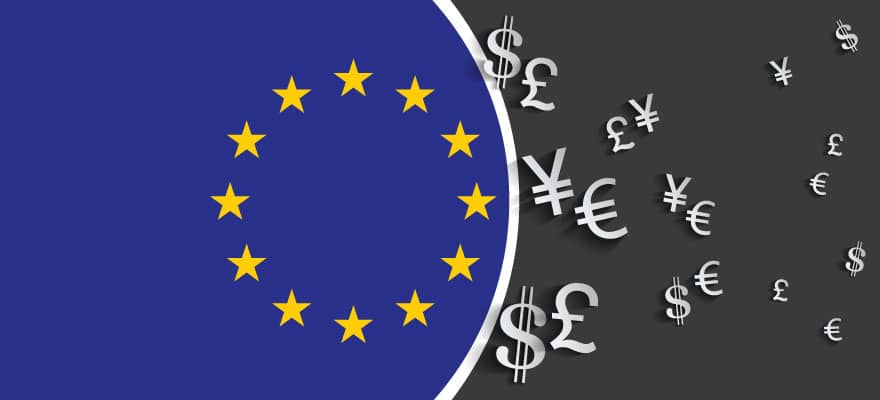With the end of the consultation period that was outlined by French regulatory authority Autorité des Marchés Financiers (AMF), companies operating in the country are looking at the prospect of a new regulatory framework under which they can operate.
Clients and the brokers themselves have until the end of this week to present their arguments to the French regulator. According to sources with knowledge of the matter a large number of clients have been sending their feedback to the AMF.
The newly formed industry association AFCOPSI (Association Française des Courtiers et Prestataires de Services d’Investissement) is also expected to weigh in with its own commentary on the deliberations of French authorities.
France: it’s about how much Leverage
One of the main factors that the AMF has taken into account when deciding on the advertisement ban is the adoption of 1:5 leverage for trading products that include Forex and CFDs. The industry association in France finds this level overtly strict and would be in contradiction to banking products.
If the AMF is to impose stricter requirements for retail brokers, it should also do the same for big banks
If the AMF is to impose stricter requirements for retail brokers, it should also do the same for big banks, which are free to offer a number of high-leverage investment products such as Turbos, Warrants and Certificates which include complex option strategies. The only justification that the French regulator has is that those products come with a prospectus.
Industry sources have commented to Finance Magnates that such bank products are far more complex than CFDs and offer leverage that can go over 100 times the investment and yet they remain untouched and publicly defended by the AMF on TV. Some industry participants have started entertaining the idea that the AMF is under the influence of the French banking lobby.
Timeline of advertising ban in France
For the time being there is no information regarding when the new advertisement law will be passed. Dubbed the Sapin Law 2.0, the French parliament is unlikely to vote on it before the end of October.
The ban is likely to extend to binary options and FX and CFDs trading that have leverage over a certain level. For the time being nobody but French authority insiders know what that level would be. Sources from the industry shared with Finance Magnates that anything under 1:20 would be very challenging for the industry in France, while banks can offer 1:150 on their products.
The Netherlands: making sense of the advertisement ban
With the increasing number of complaints against companies that are mainly operating offshore, Dutch authorities are on their way to eliminate the relevance of passporting into the single European Market.
Many brokers that have been providing their services across Europe have widely abused clients and have been focused on obtaining short-term gains instead of long-term objectives and business sustainability.
One company that has been a big innovator in retail trading while at the same time taking into account the interests of clients is BUX. The casual stock trading app that aims to first teach its users how to trade before granting them access to higher leverage could be one of the firms affected by the prospect of a ban in the Netherlands.
Many brokers have widely abused clients and have been focused on obtaining short-term gains instead of long-term objectives and business sustainability
As Finance Magnates has learned from the CEO of BUX, Nick Bortot, the company is actually encouraging the moves undertaken by the regulator.
Commenting to Finance Magnates, Mr Bortot said: “There is something wrong in the industry and there are companies whose interests lie ahead of the interests of their clients. It’s not a surprise that the regulators are looking into the matter and I’m quite happy that they are.”

Nick Bortrot
“I’ve spoken with a lot of regulators in The Netherlands and I know that they are normally smart and subtle here. They want to clean the industry and not erase it. The root of the problem is that some CFD trading providers are too aggressive in marketing and use affiliates that don’t care about their name and only about receiving their fees. Others are simply promising to their clients unrealistic returns,” the CEO of BUX elaborated.
Just like in France, retail investors in the Netherlands have access to turbos, warrants and certificates, with CFDs only having a minority share with Saxo Bank being the main company that is offering local traders access to FX and CFDs.
Netherlands is not Belgium, but high leverage counts
As obviously is the case, the Netherlands is different to Belgium, where no companies have been maintaining local representative offices. This fact made the decision of Belgian authorities to outright ban binary options, forex and CFDs trading easy.
The other aspect is the offering of very high leverage, which in many cases surpasses levels of 1:100, which is still quite high by professional standards. It is no secret that it impacts the profitability of retail clients and in many cases is the reason why they lose control of their accounts.
Mr Bortot is optimist about the future of the industry in the Netherlands: “Regulators will address these two topics and keep the good part of the industry. It’s not easy to control but the regulators managed to do that with other products and will give the necessary tools to the companies that do take the interest of their clients seriously.”






















